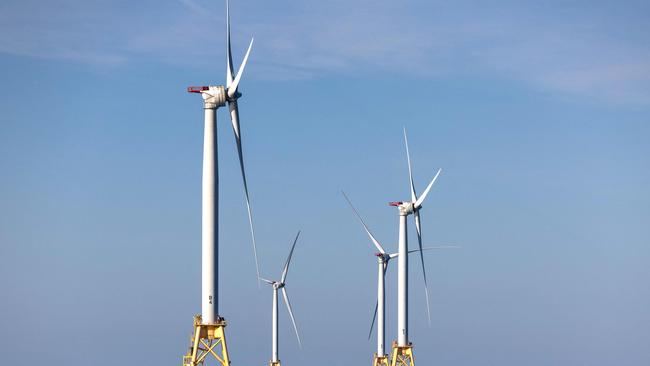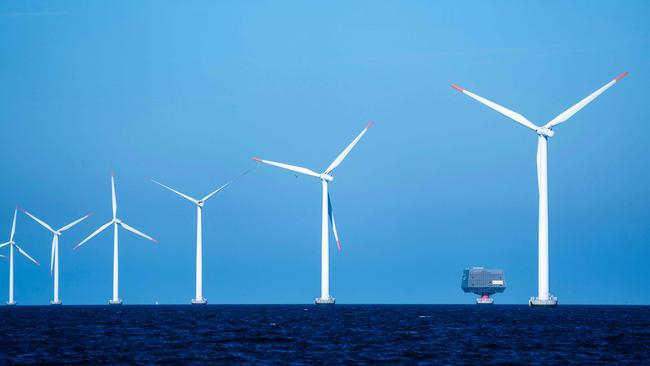Offshore wind developers start Victorian surveying ahead of auction
The acceleration of works is a boost to Victoria’s hopes of developing an offshore wind industry to replace the state’s coal capacity.

Offshore wind farm developers establishing projects in Victoria have begun early survey works as they prepare for a scheduled auction.
The acceleration of works is a boost to Victoria’s hopes of developing an offshore wind industry to replace the state’s coal-fired power stations.
Victoria is one of Australia’s most coal-dependent states but two of its three coal-fired power plants are scheduled to shut within a decade.
The Copenhagen Infrastructure Partners and CBUS-backed Star of the South offshore wind project – Australia’s most advanced offshore wind project – has for some time been undertaking early stage works such as undersea surveys.
The Australian understands Corio, owned by Macquarie, Parkwinds and the AGL Energy-backed Gippsland Skies project have all recently begun new stages of work.
Each project will need to ascertain the feasibility of their projects before bidding in the state auction scheduled for this year.
Such auctions set the minimum and maximum return a developer would receive once generating electricity. Projects typically are only viable once they have secured an agreement.
Under the scheme, should the wholesale electricity price fall below an agreed threshold, taxpayers will compensate the renewable energy project.
Should the wholesale electricity price exceed a metric, developers pay the government.
The scheme design eliminates revenue risk for developers.

The state government has insisted it will hold the auction this year, despite sources telling The Australian senior figures had raised the prospect of a delay.
A delay would allow more time for prospective developers to prepare for bidding.
Increased participation in the first auction would increase competition and reduce risks for taxpayers.
Industry figures aware of current government thinking said the current plan was to hold the auction late this year, with the results announced in 2026.
The results are critical to the prospects of the Victorian energy transition plan. The first auction is for 2GW.
Star of the South is the most advanced project.
The government in 2022 set a target of generating about 20 per cent of its energy needs from offshore wind within a decade.
The target then doubles to 4GW by 2035 and the 9GW by 2040. In all, Victoria sees potential for 13GW of offshore wind capacity by 2050.
But amid concerns about the viability of the plan, Victoria is also pushing to accelerate other forms of renewable energy.
The state government last year gazetted its new regime to fast-track planning approvals for solar, wind farm, battery storage and transmission line proposals.
New rules leave it up to the minister to notify potential objectors.
The government claims, in the document, the change will “help to unlock the current $90bn worth of investment value in renewable projects that are in the pipeline” and create about 15,000 jobs.
The Australian Energy Market Operator estimated utility-scale wind and solar capacity would need to triple by 2030 and increase sevenfold by 2050, a target which has simultaneously spurred a series of new federal policies and stoked alarm in the regions.
A spate of offshore wind developers establishing projects in Victoria have begun early survey works ahead of a scheduled auction to build the first developments earmarked to provide much of the state’s energy needs.
The acceleration of works is a boost to Victoria’s hopes of developing an offshore wind industry to replace the state’s coal capacity. Victoria is one of Australia’s most coal-dependent states but two of its three coal power plants are scheduled to be shuttered within a decade.
The Copenhagen Infrastructure Partners and CBUS-backed Star of the South offshore wind project — Australia’s most advanced offshore wind project — has for sometime been undertaking early stage works such as undersea surveys and The Australian understands Corio, owned by Macquarie, Parkwinds and the AGL Energy-backed Gippsland




To join the conversation, please log in. Don't have an account? Register
Join the conversation, you are commenting as Logout